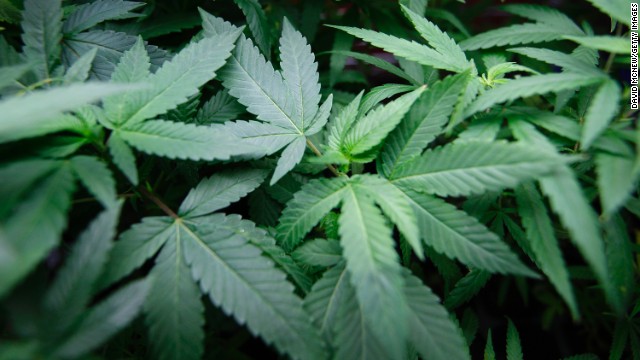
Voters headed to the polls in six states on Tuesday will consider
31 ballot measures, including questions about marijuana taxes and requiring
labels for genetically modified food. The question of secession also made it on
the ballot in several Colorado counties. Here are a few highlights:
Last year, voters in sharply divided Colorado decided to legalize
recreational marijuana. This year, they're being asked to impose a special 15%
excise tax on the drug to help fund school construction, along with a 10% sales
tax to bolster marijuana-related law enforcement efforts. While opponents argue
it's unfair to single out marijuana for higher taxation than products such as
beer, the measure is expected to pass.
The non-partisan Colorado Legislative Council projects that the
measure, if approved, will generate nearly $70 million in additional state tax
revenue next year.
Voters in 11 counties in northern Colorado are being asked if
they want to secede from the state. Ten counties in conservative, rural
northeastern Colorado would theoretically form a 51st state known as North
Colorado. Moffat County, located in the northwest corner of the state, would
become a panhandle for neighboring Wyoming.
The plan has no chance of becoming reality. Among other things, it
would also require statewide and congressional approval. But approval or even a
close vote at the county level would send a loud message of growing grassroots
conservative anger toward a more liberal Denver-based Democratic establishment
that has taken up controversial measures related to gun control, gay rights,
and green energy.
Similar secession measures have been floated in a number of other
states in recent years -- a reflection of the country's growing ideological and
partisan divide.
Washington: labeling genetically modified food
Voters in Washington State are considering a hotly contested
initiative that would require labeling all foods containing genetically-modified
ingredients. The measure pits local consumer advocates, who argue that the
measure is needed for consumers to make better informed choices, against large
agribusinesses such as Monsanto, which argue that such a law would spook
potential customers and unfairly imply that such products are unsafe.
Washington is the second state to consider such a ballot measure.
A similar proposal was narrowly rejected by California voters last year.
According to the non-partisan National Conference of State
Legislatures (NCSL), 95 bills relating to the issue have been introduced in
state legislatures so far this year -- a reflection of growing public interest
in the controversy surrounding genetically modified foods.
Other noteworthy measures
Voters in New Jersey are considering whether to amend their
constitution to raise the state minimum wage from the federal level of $7.25 to
$8.25 per hour. Future annual increases would be tied to changes in the cost of
living. Eighteen states currently have a minimum wage that exceeds the federal
requirement, according to the NCSL.
New York voters are being asked to revise their constitution to
allow the legislature in Albany to authorize seven casinos, with the goal of
generating new revenue for public schools and potentially cutting local
property taxes.
No comments:
Post a Comment